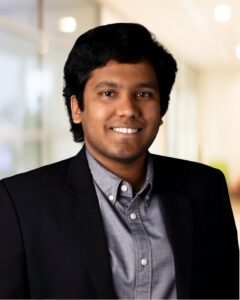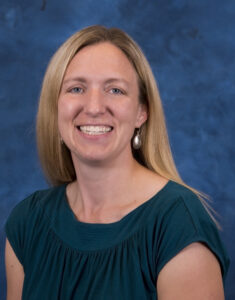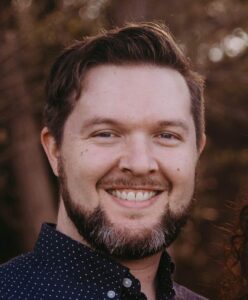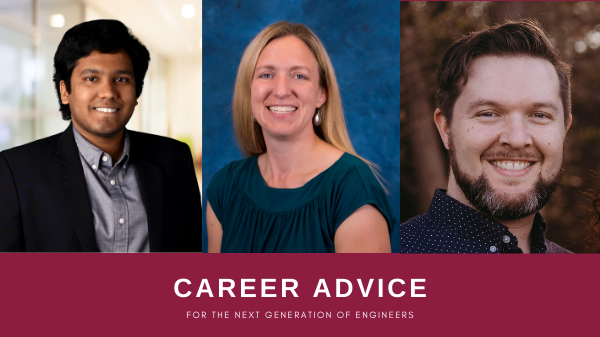Fulton Career Exploration Night has become an integral part of the first-year experience for students. Traditionally, alumni from around the engineering industry come back to campus for one night and advise students on how to get the most out of their academics and achieve their career goals.
This year, the Fulton Career Exploration Night was a little different. Like just about all events, it was moved online and instead of being one night serving all of the schools, it was divided up into 11 sections spanning several weeks.
The electrical engineering night took place on September 29 and included several of our alumni. To fit the new delivery system the format was changed to a panel discussion instead of the usual career fair set up. Each of the participating alumni gave a short introduction and included their best advice for students.
Inspired by that night, we asked some of our volunteer alumni to give us their go-to advice that we can pass along to all our students.
 Karan Tantaria, ’19 MS
Karan Tantaria, ’19 MS
Q: What inspired your involvement to connect with current students?
A: I have always been an inquisitive person and genuinely curious about things. Like every other student, there was a tsunami of questions going through my mind even before starting my coursework at ASU. I was blessed to have ASU alumni and seniors who were incredibly patient in answering all my questions, even though the questions began to get a little annoying at times. I would always look up to them for help and guidance in matters even beyond academics. Their tips and tricks helped me cruise through my courses, building a robust skill set and getting involved with all the on-campus activities. I’m thankful for all the help I received from them and I promised myself to pass it on to all the students starting their journey at ASU. I had the opportunity to attend various student mixers, welcome events, etc., during the orientation week and connect with people. But with the current situation and no in-person events, incoming students might find it extremely difficult to direct their questions to the right people. The Career Exploration Night was a great platform to let them know that we are also there to help guide them in their journey.
Q: What is your top advice for students navigating the current job market?
A: The current job market has been extremely challenging over the past few months, but with a strong job searching strategy, there is nothing that can stop you from finding your dream role. My top advice to students would be to self-evaluate your strengths and weaknesses at the very beginning. Keep polishing your strengths and improving on your weak areas. Learn how to communicate with people effectively and this includes being a good listener. Start networking with people who have a similar mindset and goal. LinkedIn groups, local Meetups, professional society events, etc., are an excellent way to meet people and learn from them, know their journey and see what it took them to get where they are now. Develop the minimum skills required for the role and always be eager to learn more. You must distinguish yourself from a candidate that’s before and after you. Build a new unique set of skills that no one has to offer, be the best at whatever you intend to do or undertake projects that prove your mettle.
Remember that there are still hundreds of jobs being added to the market daily but there’s only one that will be the best fit. Keep working hard towards obtaining that one job, the dream role/title that you always imagined giving your 110% regardless of anything that happens. Stay motivated and keep searching for that one perfect role!
Q: How has your experience at ASU advanced your own career?
A: ASU has been a critical factor for my growth academically, professionally and personally, too. All the courses offered were top-notch and very much relevant to the latest technologies used in industries. Major credit goes to all the professors and advisors for their hard work, sincere efforts, and dedication. Along with the excellent coursework, I had multiple occasions to participate in hackathons, showcase my skills and obtain a hands-on learning experience. It was from these events that I discovered my passion for product development and management. The opportunities at ASU are endless, and I got to learn + explore new things now and then. I was grateful for having the opportunity to serve as the president of a professional student organization, be involved as an assembly member in the graduate student government and get inducted into two engineering honor societies. I obtained invaluable leadership experience and developed strong people skills, which I find helpful in my current role as a full-time employee in a leading semiconductor company. Time management was something I always struggled with, but as I learned to balance my academics and on-campus involvement, I got much better at it. These things cannot be taught through in-class lectures or coursework; it’s the conducive environment at ASU that pushes you to learn and achieve more. I’m immensely thankful to the engineering career center for helping me develop professionally and secure a job immediately after graduating with my master’s degree. The journey is not always as easy as it seems, but it’s the Sun Devil spirit that keeps you going; never give up!
ASU certainly has a good alumni network, a solid reputation worldwide as a high-ranking research university, and the most innovative university in the country. Employers highly value the degree programs and skills that ASU graduates bring to the table. As more and more ASU graduates enter the job market, greater are the expectations, standards and hiring bar set by top employers in respective fields. I have tremendously benefitted from the remarkable prestige of being an ASU alumnus and look to advance my career to even greater heights.
 Sarah Rogers, ’00 BSE
Sarah Rogers, ’00 BSE
Q: What inspired your involvement to connect with current students?
A: Connecting with early-career engineers and students is a passion of mine. I enjoy the energy, creativity and excitement of these engineers and I hope some of my guidance and advice can help them achieve their career goals.
Q: What is your top advice for students navigating the current job market?
A: Finding the right job at the right time is difficult. Few companies will provide you an advanced job offer. I recommend you broaden your search criteria when looking for your first job. There are so many great companies beyond the big names of Google, Amazon, Intel, etc. Getting in the door is the most critical part and then you can explore the different types of positions available to you as you grow and develop in your role. Do you know what positions to apply for? Most industries do not post degree-specific roles, as you would see for internships. Do you know what a Product Engineer, Test Engineer or Process Engineer does? If not, find out, there may be a role perfectly suited for you that you’ve never heard of. And finally, hiring managers do not expect you to know all the answers coming out of school, but we are looking for the right behaviors and potential. We want self-motivated, driven individuals who bring a passion for learning and help support a positive working environment; if you’re able to demonstrate these behaviors at your interview, you will do well.
Q: How has your experience at ASU advanced your own career?
A; Not only did I get my degree from ASU and learn the fundamentals of Electrical Engineering, but I had many out-of-the-classroom experiences that prepared me for my career. The most impactful experience was my time as a NASA space grant intern. On that team, I developed practical engineering skills like project planning, debug/bench skills and PCB design experience.
 Chris Burns, ’05 BSE and ’09 MS
Chris Burns, ’05 BSE and ’09 MS
Q: What inspired your involvement to connect with current students?
A: We were looking for some help with some projects. I remembered the labs I did when I studied at ASU and realized right down the street from our office are talented students that might be interested in seeing what it’s like working at a small company while getting some real-world experience.
Q: What is your top advice for students navigating the current job market?
A: If you’ve worked on a cool project, we want to know about it! Come prepared to show how you participated and answer questions about how it works and the decisions you made along the way.
Q: How has your experience at ASU advanced your own career?
A: The bulk of my career has been spent writing firmware and low-level embedded software, but there have been several times where I recalled something from my EE education that the other engineers in the room didn’t think about. For example, once, the team I was on tried to understand why the RF feedback circuit wasn’t properly controlling the transmit power. When looking at the measured power, I noticed that a 6 dB internal resistance wasn’t 1 dB lower than when the 5 dB external resistance was used and suggested we had an impedance mismatch on the transmission line. The engineers who do RF all the time were surprised that the firmware guy came up with the solution!
Do you have career advice for the next generation? Share it with us and we’ll pass it along on our social media networks.
